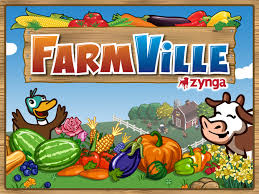Do not fret if your child is playing Farmville on Facebook with his/her siblings or cousins. This will only cement the bond between them in the long run. New research shows that beyond being a fun distraction, social network games (SNGs) can offer family members a meaningful way to interact and meet social obligations.
“These interactions prove social networks are tools that break down both communication and age barriers,” said researcher Kelly Boudreau, research fellow at the Concordia University’s Technoculture, Art and Games Centre .
“SNGs give families a convenient and cheap way to transcend geographical boundaries,” Consalvo said.
For the study, Consalvo and co-author Kelly Boudreau, a research fellow at Concordia’s Technoculture Art and Games Centre, polled a group of social network gamers.
Using a questionnaire and follow-up interviews, the researchers explored what it means to interact with family members via SNGs.
They found that these online games offer families a common topic of conversation and enhance the quality of time spent together, despite the fact that most SNGs do not necessarily involve any direct communication. The games can also bring together family members who may be only distantly connected, with respondents citing experiences such as connecting with long-lost cousins or bolstering relationships with ageing aunts.
“Maintaining connections is especially important as families find themselves dispersed across countries and continents. SNGs give families a convenient and cheap way to transcend geographical boundaries,” added Consalvo.
Families that play together play the longest and have the greatest sense of duty to one another as players. With online games like Candy Crush Saga increasingly replacing traditional board games, SNGs are quickly becoming an important way to interact socially.
“It’s not just siblings in their early 20s using SNGs to connect. Grandfathers are playing online games with granddaughters, mothers with sons. These multi-generational interactions prove social networks are tools that break down both communication and age barriers,” Boudreau said. The paper was reported in the journal Information, Communication and Society.


